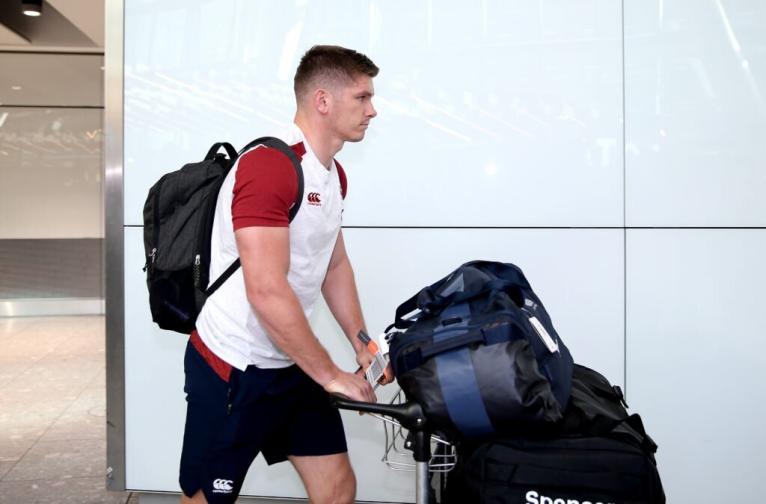After England’s miserable Rugby World Cup final loss to South Africa in Yokohama on Saturday, a phrase that has haunted the team for a number of years now has reared its head again, ‘plan B’.
It is no secret that England’s plan B, or lack thereof, has been a perennial problem for the side throughout Eddie Jones’ tenure, and after the euphoric victory over the All Blacks in the semi-final, many would have thought that this would not have been a concern ahead of the final.
When England are able to execute their gameplan, they are arguably the best team in the world. The semi-final showed this, as their dynamic and powerful forwards ensured they were on the front foot for the entirety of the match, and never needed to change their approach. However, when they faced the Springboks’ belligerent rush defence, no player on the team seemed to know how to respond, as they played too much of the match in the wrong places on the field and inevitably conceded penalties.
Continue reading below…
This is forgivable, as Rassie Erasmus’ side played like men possessed, but many England fans are rueing the fact that their side have never been able to iron out this flaw. It was perhaps made most apparent during the Six Nations, as England produced a display against Ireland in the opening game in Dublin that was akin to their performance against the All Blacks recently. Ireland went into the game fresh from a victory over Steve Hansen’s side a few months before, but were overwhelmed by the men in white.

England rugby team return home
Only a few weeks after the performance against Ireland, England came undone against Wales and the Principality Stadium, as Warren Gatland’s side completely nullified the aerial threat England posed and were immovable in defence, and Owen Farrell and his team had no answers. The Six Nations closed in a bizarre match which saw Scotland fight back from a 31-0 deficit at Twickenham to earn a 38-38 draw, another game where England failed to respond to the Scottish onslaught.
The difference between the RWC final and the matches against Wales and Scotland in the Six Nations is that England were never on top against the Springboks in truth. But they still struggled to react to how they were playing, although, to be fair, it was always going to be tough to overcome such an inspired side. This has been a longstanding problem with England, and while the players will learn from this final more than any match before, the biggest disappointment to many fans is that it was made apparent in the biggest game of all.
This is what was said:
It strikes me that the Achilles heel of the Jones era has always been the inability to switch to plan B. This tournament, England have always been on the front foot until the final, but as we’ve seen in the past, when the game plan isn’t working, they can’t seem to adapt.
— Quin of the north (@Rawdogg15) November 2, 2019
Excellent World Cup Final, feel SA did to England what England did to the All Blacks last week. Questions remain about Eddie Jones’ lack of a ‘plan B’. That said well played England, very good tournament and congrats to South Africa.
— Rob Henderson (@RobjHen77) November 2, 2019
Eddie Jones couldn’t explain why they fell short. Go back to every 3 nations championship and grand slam decider that England have lost! How about plan A didn’t work and plan B (there is not one) Eddie who is at fault? https://t.co/vl16k58NtO
— Matty the jap (@Mattythejap) November 2, 2019
Disappointed when your RWC pre-tournament prediction is correct bad luck England but I often think that if plan A doesn’t work there is never a plan B so often happens at the last hurdle for England ie 6 nations as another example
— Mike Parsons (@MikeP39369411) November 2, 2019
No Plan B. Command and control leadership from Eddie Jones leads to ZERO adaptive capacity from any team. Well done South Africa ???
— Graham Hogg (@grahamhogg_cw) November 2, 2019
Excellent World Cup Final, feel SA did to England what England did to the All Blacks last week. Questions remain about Eddie Jones’ lack of a ‘plan B’. That said well played England, very good tournament and congrats to South Africa.
— Rob Henderson (@RobjHen77) November 2, 2019
It is hard to determine whether this apparent lack of a plan B is down to the players or Jones, but the All Blacks’ display against the Springboks in their opening game of the RWC was a masterclass in responding to what was in front of them. After the Springboks dominated the first 20 minutes of the contest, Hansen’s side was able to react and exploit some of their weaknesses, particularly how narrow their defence was with a number of cross-field kicks.
England failed to react in the same way, and while it is not guaranteed that they would have won if they did, it may have made the game a little closer.
Watch: Sonny Bill Williams’ potential switch





























































